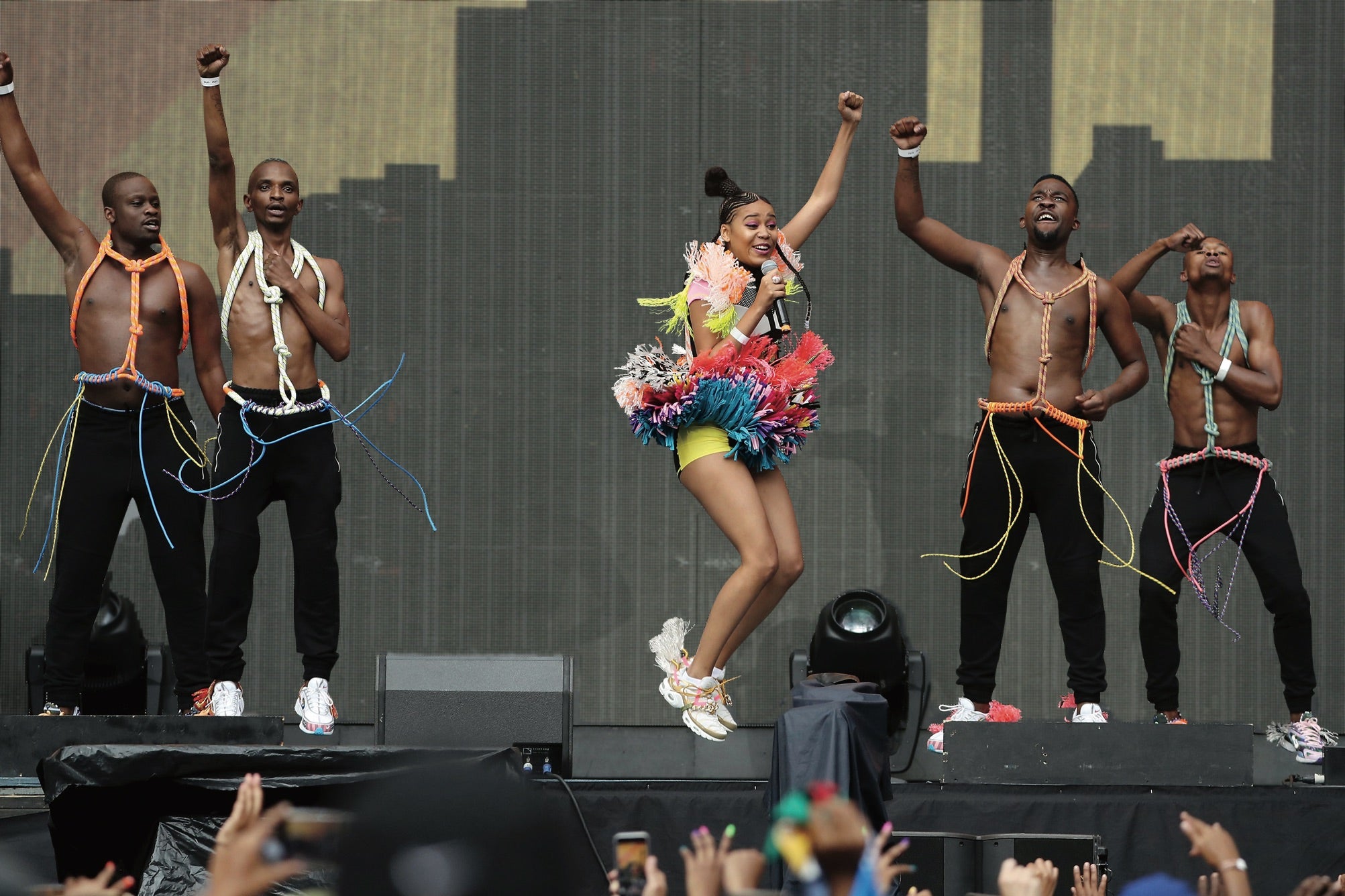At the 2019 BET Awards, South African hip-hop star Sho Madjozi had two goals: enjoy herself immensely and meet as many people as she could. Not only was she nominated as one of the Best New International Acts, but it was also her first time in L.A. So Madjozi repeatedly told herself, “I’m going to have an amazing time regardless of what happens.”
Her award was presented during the preshow live stream, when host Terrence J announced the winner. Clearly distracted by the moment, the 27-year-old genuinely began congratulating Nigerian singer Teni the Entertainer. But as she was warmly embracing her fellow nominee, Teni must have whispered, “You won.” What happened next can only be described as Madjozi losing her s–t. Her lilac, Fulani-styled braids started bouncing emphatically as the gravity of the news hit her.
“I never really expected to reach those heights without the backing of a big label or something,” she says days later and still in shock. That’s right. Madjozi, born Maya Wegerif to a South African mother and a Swedish father, has been racking up a number of big wins as an independent artist. She released her first album, Limpopo Champions League, in December 2018. Twelve days before its release, she performed a string of its gqom-infused (a widely popular style of South African house music) tracks, such as “Huku” and “Wakanda Forever,” at the Mandela 100 celebration in Johannesburg.

“The first Global Citizen concert in Africa was a huge platform for me,” says Madjozi, who found new fans around the world, including director Ava DuVernay. She tweeted, “Sho Madjozi is one of the highlights of my trip to South Africa. Yes!” Back at the BET Awards in June, she snagged a photo with Cardi B, who told Madjozi, “You remind me of me when I won my first award.”
The poet turned rapper’s winning streak intersects with a number of African artists who are breaking through on American radio, including Davido, Burna Boy and Tina Savage. “To be an African making music at this time is a blessing. The world is ready to listen,” says Madjozi, who next month joins the likes of Anderson .Paak, Brittany Howard and FKA twigs at AfroPunk Atlanta. However, she hopes the embrace of these artists isn’t only an instance neatly packaged for consumers to throw away once the buzz wears off. “The idea of Afrobeats becoming a global sensation, that alone doesn’t excite me,” she says. “It’s only exciting if Africans actually benefit from it in a genuine way. If Africans are at the center of conversation, that’s exciting.”
I want to take my culture with me. I don’t want to leave parts of me behind so that I can live in a globalized world.
Sho Madjozi
Another source of pride for Madjozi: staying authentic to her rural Tsonga culture through performing in its language—and Swahili—and wearing a voluminous, traditional Xibelani skirt, with her own spin. “I wear mine quite short,” she says with a laugh. It’s at the center of who she is as an artist and a woman. “Everything I tried to do is that reimagining of, What would it look like to be a young Tsonga woman in the world? What would it look like if I hadn’t been told that my culture was dead? If I wasn’t told that Africans don’t contribute anything good, then what would I look like? I would probably have braids, and that’s what I have. I would probably wear a short Xibelani like I do. I want to take my culture with me. I don’t want to leave parts of me behind so that I can live in a globalized world.” Thankfully, the world is coming to her.
